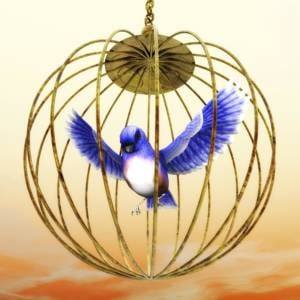
Written by Dr Steve Barlow
Freedom’s an interesting concept, and it’s not always what you’d expect or easy to define.
I spent some years delivering anger management coaching to maximum security prisoners. Contact with around 3 thousand men over 7 years revealed that some found their freedom in a place of incarceration. For some, coming to jail was the best thing that ever happened to them.
A Paralympic athlete once told me that getting cancer set him free. The thing is, when people stop and reflect on their trajectory through life, they sometimes realise that what they’ve become is not who they want to be.
Some people would resonate with the words of Janis Joplin, “Freedom’s just another word for nothing left to lose.” It sounds pessimistic, but there’s some truth to it. Sometimes we wrap ourselves up in stuff and we lose sight of who we really are. The stuff becomes our identity – our jobs, our image, the expectations of others. We play out roles that others set for us. We need reminding of the words of Rafiki – “You are more than what you have become”. Perhaps we don’t find our freedom until we let go of some of the stuff and take responsibility for ourselves.
Taking responsibility for ourselves may be what Cicero was thinking of when he said that freedom is the power to live as one wishes. Freedom is power. Taking responsibility for our lives brings that power back to us. Our choices make a difference. Our freedom to choose is not absolute (we can’t choose to holiday on Pluto), but we have the power to choose positive thoughts, to dispel negative thinking, to make firm commitments, and to engage in productive behaviours.
The French philosopher, Sartre, said that man is condemned to be free. He meant we each have responsibility to determine what our life means. We have choices, and through these choices we create our lives. Think of how some people live: they’re all talk, and that’s it. They talk about all the things they are going to do, but they don’t do any of them. They talk about how lucky other people are who do what they dream of doing, but they are condemned by their choice to talk and not act.
Taking responsibility for ourselves and finding our freedom is not being selfish. In fact, it is a powerful example for others to follow. If you’re doing it, it proves it can be done and blazes a trail for others to follow. Nelson Mandela said that true freedom enhances the freedom of others.
Most people want to be free – free to live the life they choose and be who they want to be. But how many people really do that? How many live the life they dream of? How many people feel trapped in their circumstances? It’s not easy to be free in a world where nothing’s free. There is always a price to pay somewhere. Ask any successful person what price they have paid. And then ask them whether it was worth it.
It’s all very well to talk about freedom, responsibility, and living the life you want, but it’s not much good if you can’t change anything.
Many people feel trapped in their circumstances – perhaps you’re one of them. But we need to analyse what the real problem is. The problem is not the circumstances; it is our inability to change our reality. It’s the inability to change things that can be changed. And that’s where change fitness and your power to choose come in.
Building change fitness affects how you behave. It enhances your capacity to behave in ways that make change more likely to succeed. This is not random or hit-and-miss: there is a science to it, and you can use that science to change your future.
Perhaps you’re not where you want to be right now, but are you willing to take responsibility and choose to do something positive about your change fitness? In the end, the real power you have is the power to change you – and that leads to the greatest freedom of all.